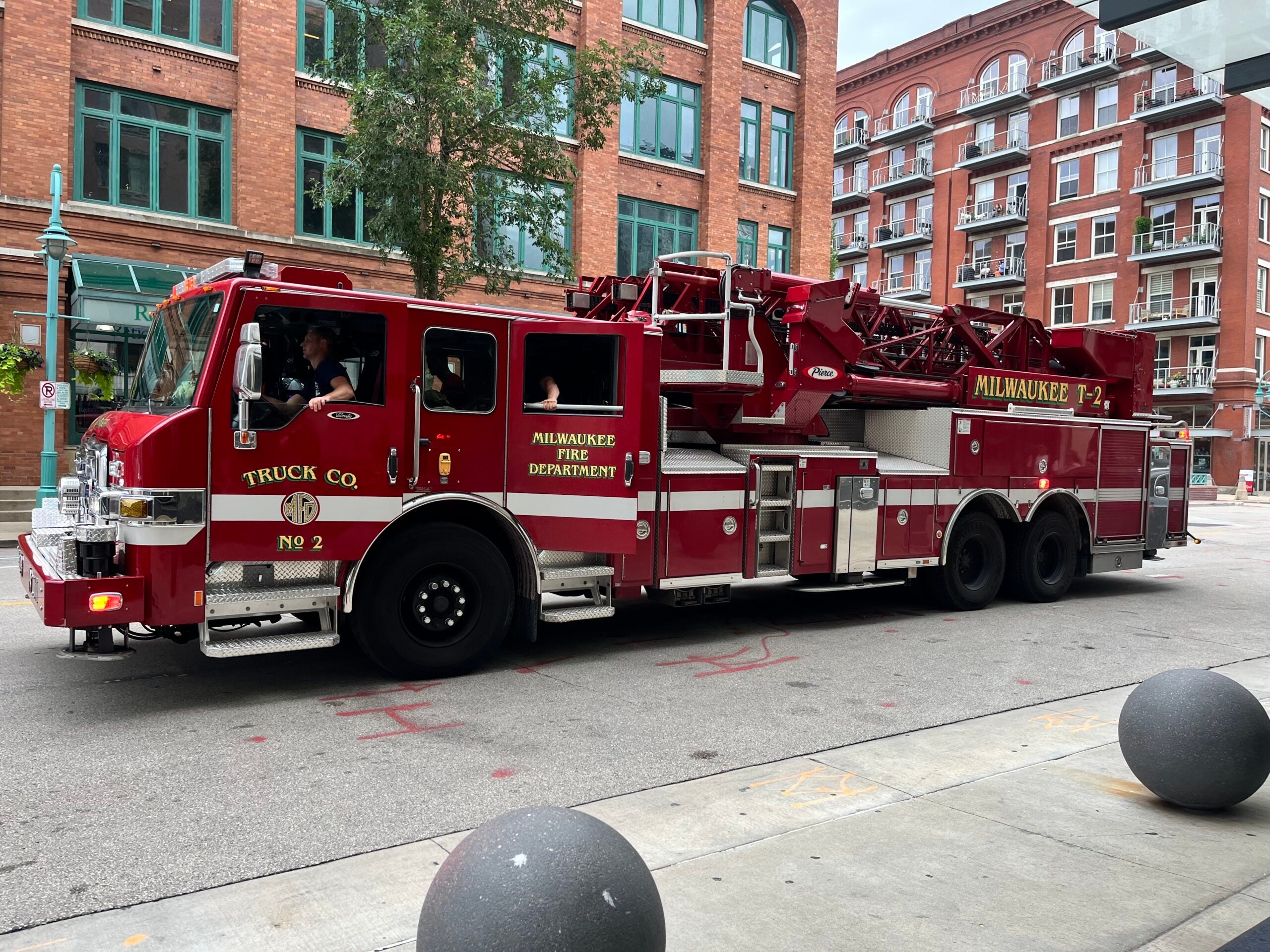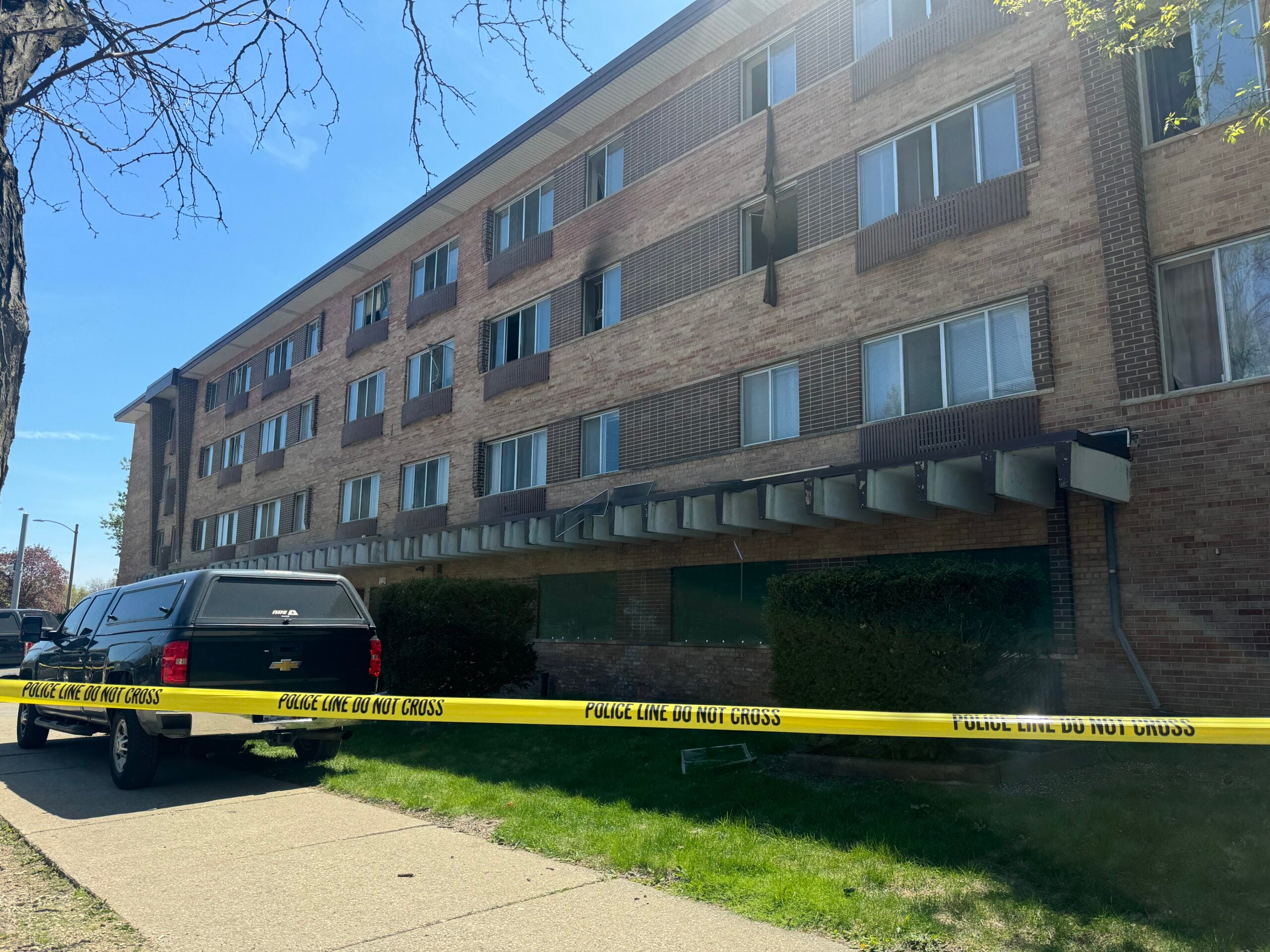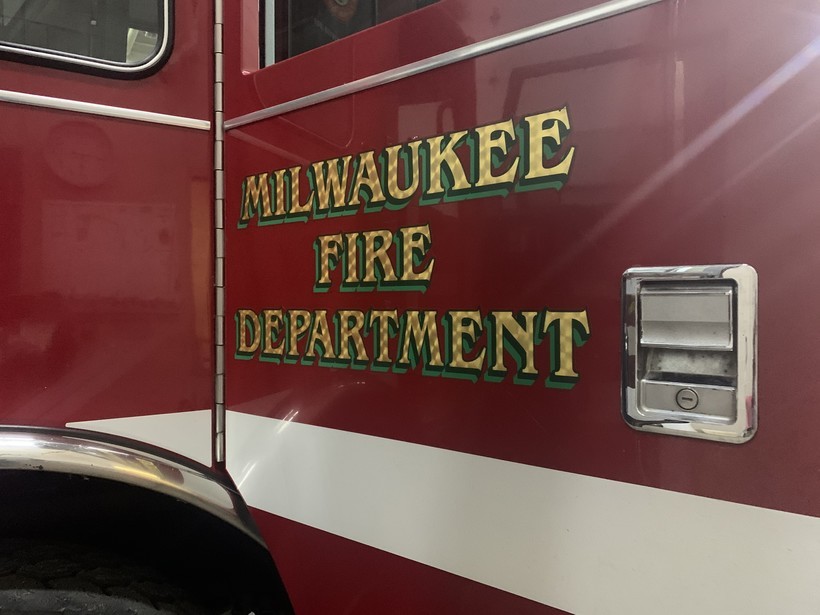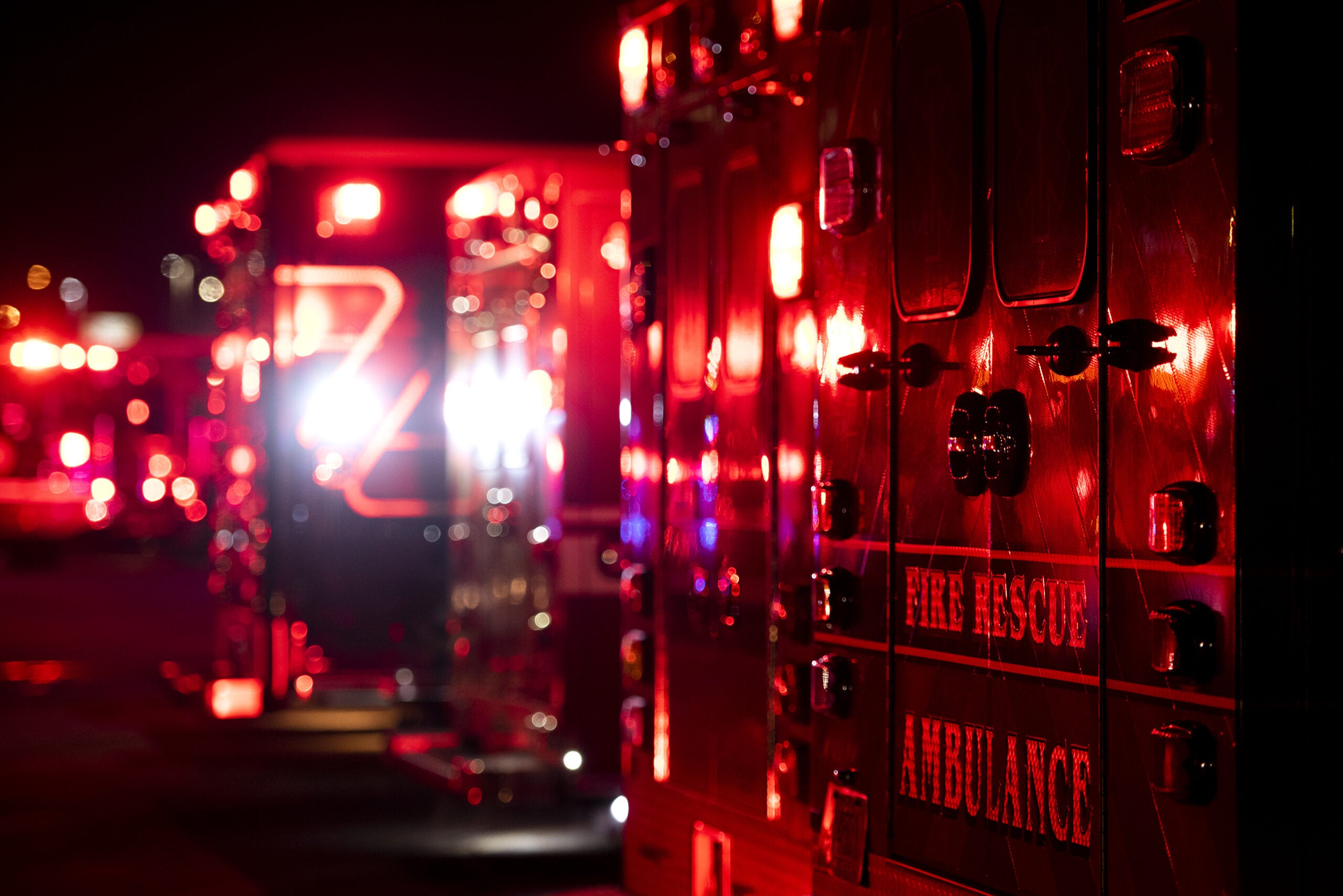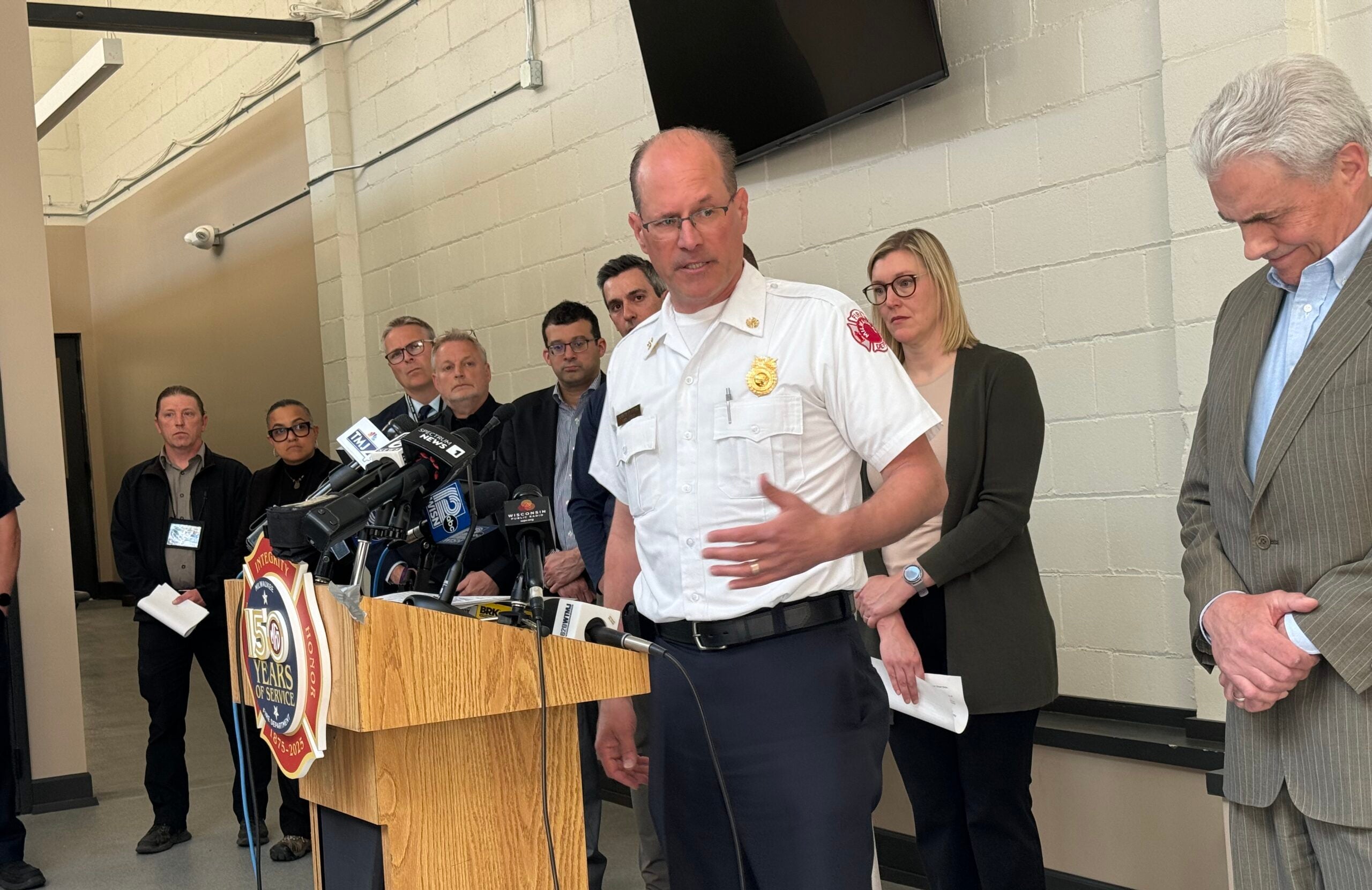Half of Wisconsin’s fire chiefs said they don’t have the financial resources to cover their budgets. And more than 10 percent of the state’s fire departments had at least one instance over the last year where a service call was not responded to, according to a recent survey.
Increasing call volumes, difficulty recruiting and funding shortfalls were the common themes among fire chiefs who responded to a survey from the Whitburn Center for Governance and Policy Research at the University of Wisconsin-Oshkosh.
The survey results, released last month, suggest a perfect storm is brewing.
News with a little more humanity
WPR’s “Wisconsin Today” newsletter keeps you connected to the state you love without feeling overwhelmed. No paywall. No agenda. No corporate filter.
“I think it’s going to get worse,” said Michael Ford, who heads the Whitburn Center. “In addition to (unanswered calls), about 83 percent reported that it is harder to maintain staffing levels now than it was five years ago. So you’ve got to believe those trends are going to continue.”
Wisconsin currently has 761 fire departments serving communities of all types across the state. Just 43 of those departments are staffed entirely by paid career firefighters. The rest are staffed by a combination of paid and volunteer first responders, with more than 600 departments manned entirely by volunteers.
While the examples of non-response are still relatively rare, it speaks to the negative impact a struggling fire department can have on quality of life in Wisconsin, Ford said.
Shared revenue deal included funding for public safety
Wisconsin’s shared revenue compromise was intended to bring some financial relief to struggling fire departments. How much money municipalities dedicate to fire departments is yet to be determined.
In Milwaukee, the deal included more than $200 million in revenue for the city. It also led to the reopening of a fire station in January after years of cuts.
Six fire stations have closed in the city of Milwaukee in recent years due to financial constraints, leading to increased response times for residents.
The deal for Milwaukee also stipulated the fire department maintain an on-duty staff of 218 firefighters by 2033. To help meet that goal, the city’s budget included funding for six new firefighter positions this year, which will bring their daily staffing to 198.
Fire Chief Aaron Lipski said a new recruit class of 50 started on Monday. Lipski said he’s lucky but knows not every fire leader in the state is.
“Act 12 is not a magical solution to everything if a municipality’s political leadership decides to leave the fire department out when they are determining what their next year’s budget will be,” Lipski said.
“Everyone who stood at the podium and talked about the importance of public safety and they articulated that means police, fire and EMS, well it’s time to bolster up,” Lipski continued. “I would ask you this: Are you aware of a volunteer police department?”
Lipski said the country has depended on volunteers to cover fire departments for too long, and it no longer works because the calls are too frequent and too complicated.
He said employers can’t be expected to allow volunteer firefighters to leave their jobs several times a week for a call. That has led many volunteer departments to close.
“It’s a life and death thing,” Lipski said. “And if that feels dramatic, wait until it’s your house on fire or your relative having a heart attack. I can’t make things get places faster in enough capacity to change modern America’s problems that they keep creating for themselves, if I’m not supported and funded.”
He said that a real change will take political action.
“I think if the general public really understood what was coming to bear, they would be quite worried, and they might make different decisions when it came time for elections, because we’re not there,” Lipski said. “And Act 12 was a huge step forward. It will be interesting to see what the policy leaders do with the funding.”
Special purpose fire districts could be an answer
Oshkosh Fire Chief Michael Stanley has been with the department for six years. He was previously with the Aurora, Colorado department. Just south of the city is the South Metro Fire Rescue. The team covers nearly 300 square miles with 30 stations, providing services to 540,000 residences.
Stanley believes similar fire districts could work in Wisconsin.
Illinois and Indiana have models similar to Colorado.
Wisconsin has more than 1,100 special districts for schools, sewage and solid waste management.
But it would take legislation to enable fire leaders to create a voluntary fire district. Doing so would include a dedicated funding source and include a mechanism for accountability, Stanley said.
“I liken it to being able to play zone defense a little better,” Stanley said. “Also, it improves efficiency. Do you need five fire chiefs when you could have one? Also you could build stations that split the difference between two districts. It has a lot of potential for increasing coverage.”
In 1995, the municipalities north of Milwaukee signed intergovernmental agreements for its fire departments and dispatch services. The shared service model is considered a success.
Today, the North Shore Fire/Rescue covers the city of Glendale and the villages of Bayside, Brown Deer, Fox Point, River Hills, Shorewood and Whitefish Bay. The seven municipalities have a population of approximately 65,000 and cover 25 square miles.
In June 2024, the North Shore team responded to 817 emergency medical calls and 303 fire and rescue calls.
Ford said creating a fire district would get rid of intergovernmental agreements and make the partnerships more permanent.
He believes there is some openness to the idea in the legislature, but lawmakers are resistant to creating a new tax.
“Right now when the fire department is part of the municipal budget it competes against police, public works, parks and one of the real advantages of the special purpose district is that the funding is for a single purpose,” Ford said. “Ultimately, you’ll see long term cost savings from this type of consolidation, but in the immediate term, there would have to be a mechanism for getting funds to these districts.”
Wisconsin Public Radio, © Copyright 2025, Board of Regents of the University of Wisconsin System and Wisconsin Educational Communications Board.

